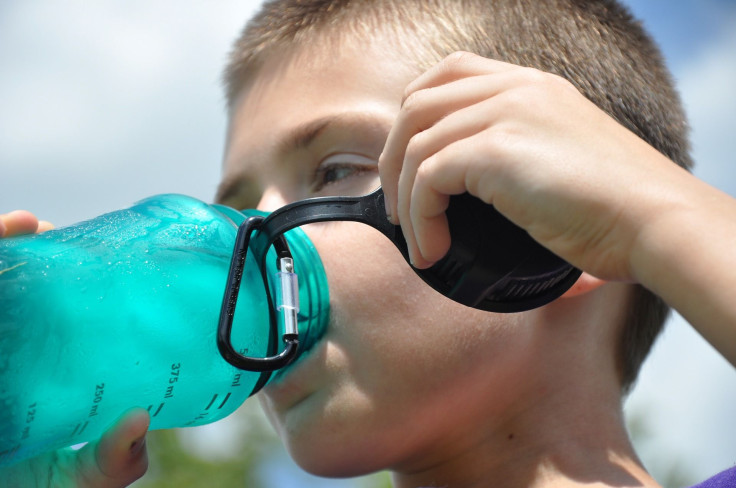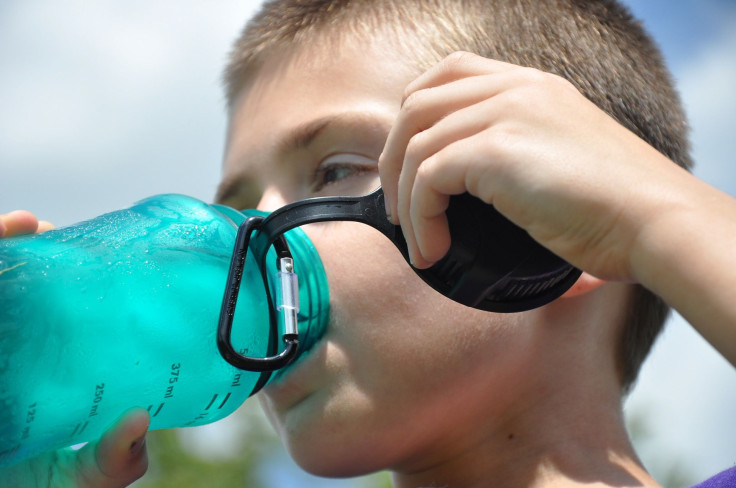Kids Who Drink Sugary Sports Drinks Risk Cavities, Childhood Obesity; Dentists Offer Alternatives

Sports drinks are a multi-billion dollar industry and are predicted to grow in the coming years as more people put down the soda can and pick up a fluorescent-colored beverage. A team of researchers at Cardiff University School of Dentistry who are worried these sports drinks are as unhealthy for children as soda set out to investigate. Their findings, published in the British Journal of Sports Medicine, reveal just how often children grab a sports drink off the shelf because of its sweet flavor and not because of its touted hydration benefits.
"The rise of sports drinks as just another soft drink option among children is a real cause for concern, and both parents and government must take note,” explained Russ Ladwa, chair of the British Dental Association's Health and Science Committee, in a statement. “They are laden with acids and sugars, and could be behind the decay problems we're now seeing. Sports drinks are rarely a healthy choice, and marketing them to young people in particular, is grossly irresponsible,” Ladwa said. “Elite athletes might have reason to use them, but for almost everyone else they represent a real risk to both their oral and their general health."
For the study, researchers surveyed 160 children from four different schools. They found that while half of the children reported drinking sports drinks socially, 90 percent of them said taste was a factor in their beverage choice and only 18 percent drank them because they believed it would improve their performance. When asked where they’re buying the drinks, 80 percent said they purchased it in their local stores, making them a readily accessible choice.
"The proportion of children in this study who consume high carbohydrate drinks, which are designed for sport, in a recreational non-sporting context is of concern,” said Dr. Paul D. Jackson, president of the faculty of Sport and Exercise Medicine, who was not involved in the study, said in a statement. "Sports drinks are intended for athletes taking part in endurance and intense sporting events, they are also connected with tooth decay. High sugar sports drinks are unnecessary for children and most adults."

What options do parents have for hydrating their children? Jackson suggests parents encourage their kids to choose water or milk, both of which should be able to sufficiently hydrate children who are active in sports. Researchers also found sports and energy drinks are often mistakenly mixed up, and while they do contain similar sugar content, energy drinks are not safe for the average child’s heart with serious side effects including seizures, irregular heart rhythms, and dangerously high blood pressure.
"The purpose of sports drinks are being misunderstood and this study clearly shows evidence of high school age children being attracted to these high sugar and low pH level drinks, leading to an increased risk of dental cavities, enamel erosion and obesity,” said Maria Morgan, senior lecturer in dental public health at Cardiff University, in a statement. "Dental health professionals should be aware of the popularity of sports drinks with children when giving health education or advice or designing health promotion initiatives."
Source: Taylor R, Needleman I, and Ashley P. Poor oral health including active caries in 187 UK professional male football players: clinical dental examination performed by dentists. British Journal of Sports Medicine. 2016.



























